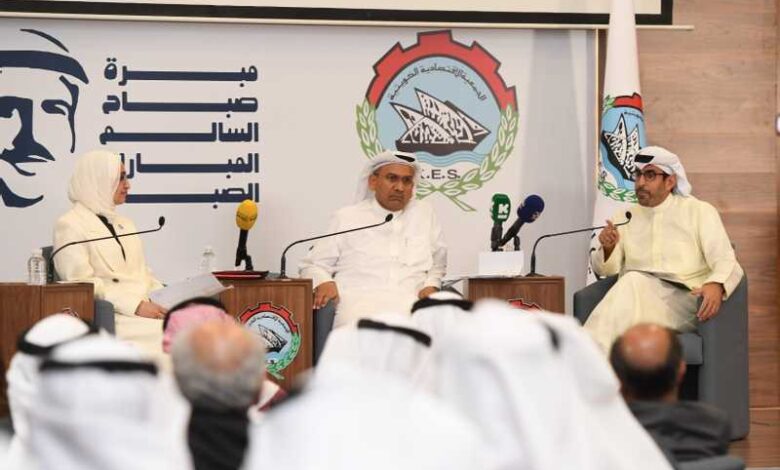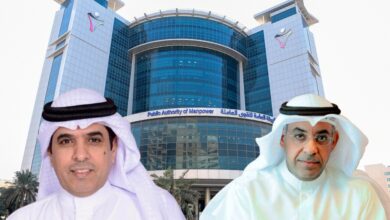Minister highlights challenges facing Kuwait’s path to reform, growth

During the fourth symposium hosted by the Kuwait Economic Society in collaboration with the Sheikh Sabah Al-Salem Al-Mubarak Al-Sabah Foundation, the Former Minister of Finance and Minister of State for Economic Affairs and Investment, Manaf Al-Hajri, highlighted critical challenges facing the current economic team working alongside the Prime Minister.
These challenges include navigating popular demands while steering towards a qualitative shift in productivity and the knowledge economy. Al-Hajri emphasized the necessity for decisive action, advocating for increased working hours and targeted financial support to deserving recipients, reports Al-Qabas daily.
Al-Hajri underscored the importance of enhancing regulatory authorities, governance, capacity building, and appointments at the highest levels. Drawing parallels with successful precedents like the Markets Authority’s role in elevating the Kuwait Stock Exchange, he stressed the need for similar advancements within institutions such as the Audit Bureau.
The minister emphasized Kuwait’s economic potential, urging for optimal utilization of its financial strength, substantial oil reserves, and robust investment experience. He called for significant economic and financial reforms, advocating for the distribution of responsibilities across ministries to ensure effective governance.
Highlighting past shortcomings, Al-Hajri lamented a decline in productivity within ministries and flawed practices in appointments and promotions. He attributed these issues to a misguided economic discourse overly focused on construction rather than addressing fundamental challenges.
While acknowledging Kuwait’s financial prowess, Al-Hajri identified institutional deficiencies as a barrier to progress. He urged a shift in focus towards addressing technical and cultural challenges, leveraging Kuwait’s substantial sovereign funds and financial resilience.
On the financial front, Faisal Al-Hamad, Head of Wealth Management for the National Bank of Kuwait Group, commended Kuwait’s progress in developing financial markets and upgrading the stock exchange to an emerging market. He highlighted increased foreign investment and acquisitions of Kuwaiti companies by foreign entities, signaling growing confidence in Kuwait’s economic prospects.
However, Al-Hamad cautioned against complacency, citing concerns over government expenditures outpacing inflation rates. He stressed the need for strategic adjustments to sustain Kuwait’s economic viability, particularly in addressing actuarial deficits and promoting private sector employment and investment reforms.
In essence, Kuwait faces both challenges and opportunities on its path to economic reform and growth. The insights shared at the symposium underscore the imperative for decisive action and strategic reforms to unlock Kuwait’s full economic potential.
Al-Hajri proposed that the new government’s economic team consist of 5 specialized teams:
- A team of specialists concerned with liquidity management.
- A team specializing in governance and oversight, consisting of specialists, working to link the state’s general objectives to the priorities of the regulatory authorities, modernizing the regulatory authorities, appointing senior officials, and monitoring the performance of the main board of directors.
- A team that deals with continuous improvements in state agencies, consisting of specialists, works to review ways to improve the state’s public finances.
- A team concerned with the immediate needs of the citizen, consisting of ministers and government officials.
- A team that deals with long-term projects and consists of specialized experts, and supervises major state projects in major sectors: transportation, communications, oil energy, housing, tourism, finance, and petrochemicals.
Meanwhile, Al-Hamad has stressed on the importance of starting to implement some financial reforms and not being hesitant or afraid of them, most notably the corporate tax (the lost tax), stressing that the state’s economy is more deserving of it, as the tax will be implemented on companies whose revenues exceed 750 million euros in the year 2025, in accordance with the international agreements.













